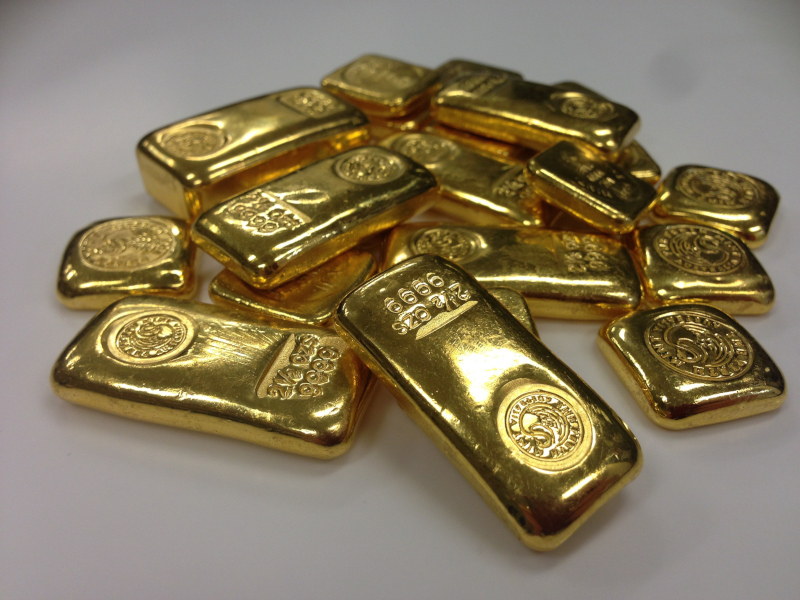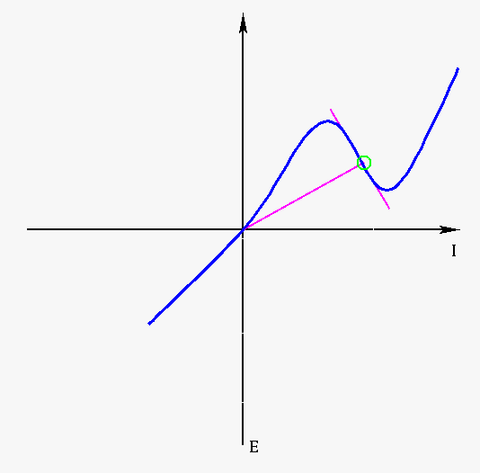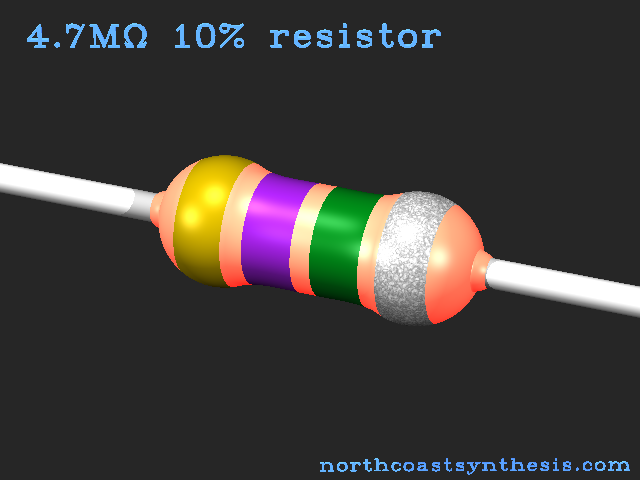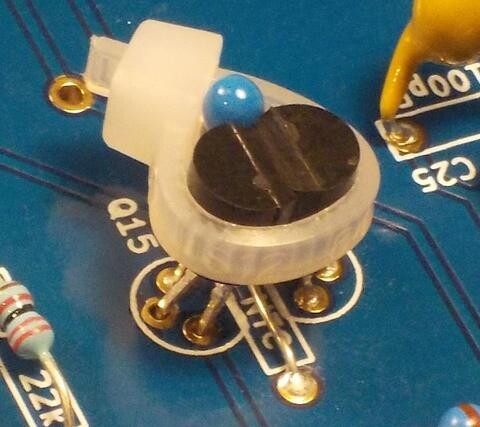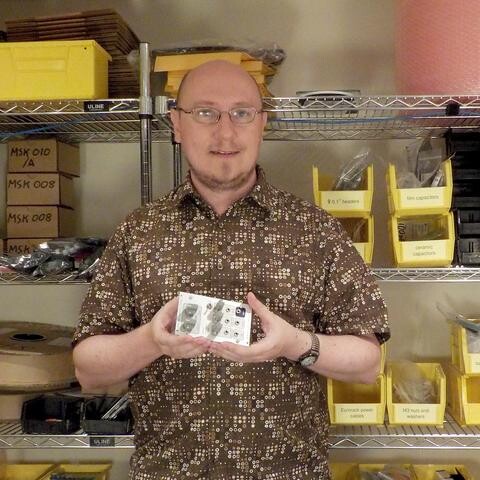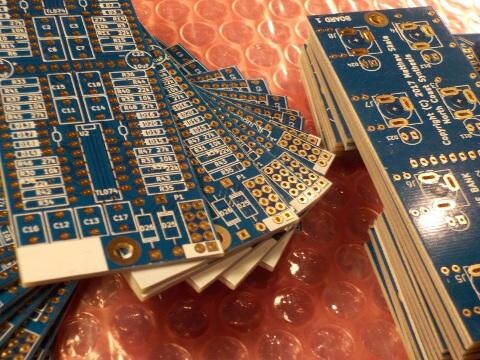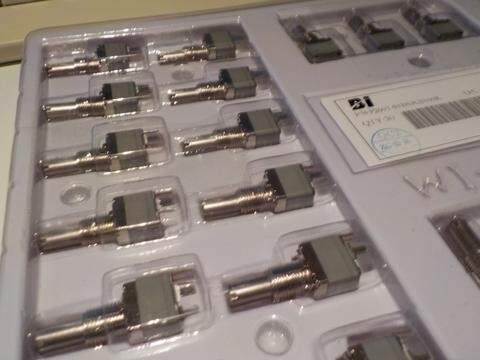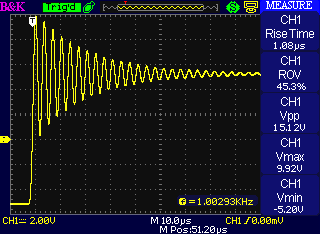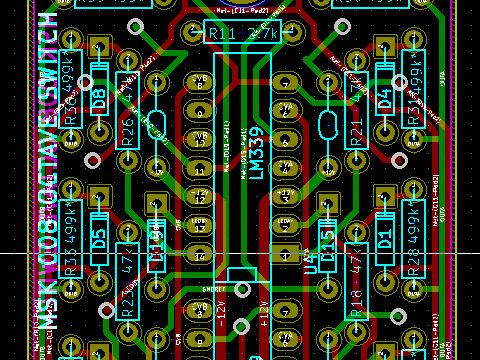tag "electronics"
Modular synthesis intro, part 5: Saving money
This is Part 5 in a series that started with Part 1. READ MORE
Random thoughts on negative resistance
It's been an exciting week here at North Coast. Since selling out the first batch of Leapfrog filters, I've been busy making more. That's still in progress. Then just yesterday I gave a talk at Frequency Freaks, here in Toronto, and that seemed to be well-received. At least, they asked me plenty of questions. I've also been playing a lot with the Roland D-05 I got as a present for the winter holidays, trying to learn how to program it. Somewhere in the middle of all this I'm trying to make progress on the development of the next North Coast module, the MSK 011 Transistor Mixer. There's been Spectre/Meltdown mitigation to do and a move of one of my backend servers to another data centre. And I have a couple of other super secret projects on the go. READ MORE
Ribbet!
The Leapfrog VCF does not actually go "ribbet," at least not without some effort. But after being told by one friend I showed it to that most people don't want to make real music with their modulars but just want something that goes "uuuuuuuuuuuLAAAAAAAAAAAAARGH" (which, let's face it, is true) I've added a demo highlighting that. Uulargh? Yeah, we've got this. READ MORE
Preferred values for resistors and capacitors
You've probably noticed that although resistors and capacitors come in many different values, some of which seem like they could be randomly chosen, there's nonetheless some sort of logic to it. You'll see power-of-ten sizes like 1kΩ, 10kΩ, 100kΩ and it's understandable that those would be "round" numbers it might be convenient to use and manufacture... but for instance there also seems to be something special about the number 47, so you see many resistor values like 4.7kΩ, 47kΩ, 470kΩ, and capacitors like 0.47µF and 470pF. Why 47? Why not 46 or 48 - especially when 47 is a prime number and 48 has many small divisors, which would seem like it might be convenient? Here are some notes on the commonly-used numbers and where they come from. READ MORE
Temperature compensation with NTC thermistors
The panel contractor says they dispatched the first production batch of MSK 007 Leapfrog VCF panels to me on Friday, and those are the last remaining physical items needed before I can launch the module; so I'm still hopeful that I can aim for a launch by the end of the month. That means I need to finish up the last few documentation items; one of them is a description of the exponential converter temperature compensation circuit, and that's an interesting enough item to be worth a Web log posting of its own. READ MORE
The Celebrated Leaping Frog
I've spent most of this week working on the second and third prototypes for the Leapfrog VCF. I'm hoping to have this product available for sale by the end of the month - maybe in time to have some kind of spooky Halloween tie-in for the launch. READ MORE
Circuit board shopping
This week I'm planning to order the prototype boards for the Leapfrog Filter, and it makes a good opportunity to go through some common questions beginners ask about shopping for PCBs. When you go to buy PCB production services you're typically hit with a form asking you to select which features you want, and it's not always clear what the consequences of the different answers may be. In this entry I go through some of those options, and give some other notes on shopping for PCBs. READ MORE
Video picks
I've been busy this week dusting off the design for the Leapfrog Filter. I really did most of the work on it back in 2016, and I even built a prototype which works pretty well, as you can hear in audio demos like this one. I'm hoping that will translate into a quick launch with not much more prototyping necessary. But I didn't have a chance to touch it at all while I was launching the Web shop and the other two modules, and now there's literal dust on my prototype and metaphorical dust on the design. This week I ordered most of the parts for some new prototypes, including these fancy million-operation conductive plastic potentiometers. They cost an arm and a leg even in bulk, and I can't really afford to buy them in bulk until after the first few Leapfrogs sell, but they feel great, much smoother than the cheap Thai carbon pots the discounters use. And they will basically last a lifetime. So I think the "build quality" of these, as people call it, is worth the price. READ MORE
Understanding stabilization capacitors
Here's a simplification of the output driver circuit from the MSK 008 Dual VC Octave Switch. READ MORE
Free EDA software rundown
The MSK 008 Octave Switch is planned to launch tomorrow and I've already posted the manual; so I thought it would be fun for this week's Web log entry to introduce some of the software tools I use for producing, and especially for documenting, module designs. My designs are free, my roots are in the free software community and my values emphasize all aspects of free speech, and so I try to stick to free software in running my operation. The title says EDA software ("Electronic Design Automation") but in fact this list covers some other engineering functions too, that people don't usually think of as EDA. READ MORE
